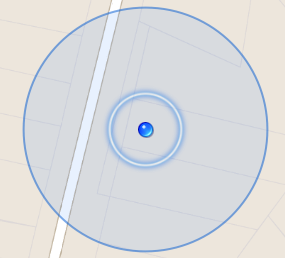 The availability and ease-of-use of GPS has made it the primary choice for many location-based services, but a recent report from the Royal Academy of Engineering in London raises serious concerns about our reliance on GPS and its fragility.
The availability and ease-of-use of GPS has made it the primary choice for many location-based services, but a recent report from the Royal Academy of Engineering in London raises serious concerns about our reliance on GPS and its fragility.
While most of us associate GPS-based navigation systems with our cars, the report’s author, Dr. Martyn Thomas, writes those are the least of our worries:
…the use of GPS signals is now commonplace in data networks, financial systems, shipping and air transport systems, agriculture, railways and emergency services. Safety of life applications are becoming more common. One consequence is that a surprising number of different systems already have GPS as a shared dependency, so a failure of the GPS signal could cause the simultaneous failure of many services that are probably expected to be independent of each other.
The core issue is that GPS technology has been built into many crucial infrastructure applications, from transportation systems to power grids, and in many cases there is no fallback option should the GPS signals suddenly become unavailable. GPS has many advantages, but it is not particularly secure or robust in terms of interference, due to its relatively weak signal strength. GPS hasn’t failed in any major way yet, but concerns are growing with recent reports of strong solar storms that have the potential to disrupt GPS satellites, and a troubling, growing black market of GPS-jamming devices.
GPS jamming technology is illegal in the U.S. and many other countries, but the devices are becoming cheap and mass-produced and have the potential to wreak havoc. You can buy a $30 GPS-jamming device online today that plugs into a cigarette lighter socket and blocks GPS signals over tens of square miles. Long-haul truckers looking to mask their locations are one group that’s using these devices, but the potential for more nefarious uses is obvious.
 Where 2.0: 2011, being held April 19-21 in Santa Clara, Calif., will explore the intersection of location technologies and trends in software development, business strategies, and marketing.
Where 2.0: 2011, being held April 19-21 in Santa Clara, Calif., will explore the intersection of location technologies and trends in software development, business strategies, and marketing.
Also worrisome is GPS-spoofing technology, which has been demonstrated by Todd Humphreys at the University of Texas. These systems can send inaccurate and untraceable readings to GPS devices. Considering that some banks and brokerages now use GPS timestamps to validate transactions, using a spoofing device to game financial systems is not out of the question.
It’s not just the Royal Academy that’s concerned. An in-depth New Scientist article on the issue points out that last November a NASA-appointed executive committee warned that GPS jamming devices could be disastrous if activated in cities. The NASA report doesn’t mince words:
The United States is now critically dependent on GPS. For example, cell phone towers, power grid synchronization, new aircraft landing systems, and the future FAA Air Traffic Control System (NEXGEN) cannot function without it. Yet we find increasing incidents of deliberate or inadvertent interference that render GPS inoperable for critical infrastructure operations.
The New Scientist article outlines some fascinating incidents that have already occurred, like a trucker that was disrupting operations at a New Jersey airport twice a day for a month and naval signal-jamming tests in San Diego that disrupted GPS and took out local cell-phone use, air-traffic control, emergency pagers, harbor traffic managent, and even ATMs for two hours.
When you consider the scope of systems that rely on GPS today, there does seem to be reason for concern, but not everyone shares the sense of urgency. Ben Rooney at The Wall St. Journal called the terrorist angle “fanciful” and describes Thomas’ report as “apocalyptic visions of a cyber-hell.”
One possible solution, or backup technology, is eLORAN (Enhanced Long Range Navigation), a land-based radio navigation system that is an enhancement of the original LORAN system used by the U.S. military in the 1950s. eLORAN uses powerful signals that are not as susceptible to jamming as GPS. A group of scientists last week called on the UK government to confirm future funding for eLORAN, and researchers from the GAARDIAN project announced encouraging results for the first ever trial of joint GPS/eLORAN receivers.
Related:
